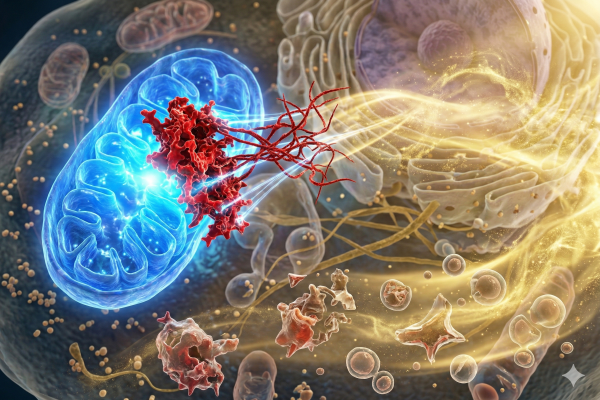May 12th, 2022 | 13:07 CEST
Cardiol Therapeutics, Tesla, Bayer AG - Instead of trading chronically overvalued shares, treat the chronically ill instead
No sooner does the US government under Biden seek to influence the Supreme Court in the Monsanto case than the Bayer share slides 7%. But is this share price slide justified? Bayer AG has made provisions for the possible ruling in June and set aside reserves for chronic diseases. Chronic diseases are also a focus of Cardiol Therapeutics. According to the World Health Organization (WHO), the prevalence of chronic diseases increased by 57% worldwide by 2020. Cardiol focuses on heart health in this regard. The share stands at about EUR 1.12 and is seen by analysts at an average of about EUR 7. Meanwhile, Tesla investors are currently experiencing what overvalued shares can do to their portfolios. Their CEO is speculating that he will no longer accept new customers. Why? You can read about it here...
time to read: 6 minutes
|
Author:
Juliane Zielonka
ISIN:
CARDIOL THERAPEUTICS | CA14161Y2006 , TESLA INC. DL -_001 | US88160R1014 , BAYER AG NA O.N. | DE000BAY0017
Table of contents:

"[...] Defence will continue to develop its Antibody Drug Conjugates "ADC" and its radiopharmaceuticals programs, which are currently two of the hottest products in demand in the pharma industries where significant consolidations and take-overs occurred. [...]" Sébastien Plouffe, CEO, Founder and Director, Defence Therapeutics Inc.
Author
Juliane Zielonka
Born in Bielefeld, she studied German, English and psychology. The emergence of the Internet in the early '90s led her from university to training in graphic design and marketing communications. After years of agency work in corporate branding, she switched to publishing and learned her editorial craft at Hubert Burda Media.
Tag cloud
Shares cloud
Cardiol Therapeutics - CEO in live Q&A on May 19
About one-third of all annual deaths in Germany are based on cardiovascular diseases. According to the Federal Statistical Office, 940,000 people died in Germany in 2019, around 331,000 from heart disease and heart attacks. Elevated blood pressure leads to the insidious disease pathway with a fatal outcome. In Germany, 50% of people over 45 already have stage I hypertension. The heart has to work harder to pump the blood through the body. Stage II organ damage develops if the invisible enemy is a constant burden, such as kidney disease and impaired vision. Those who do not control high blood pressure in the long term increase their risk of cardiovascular diseases such as heart failure, stroke and heart attack. Stage III and above results in irreparable heart failure with permanent damage. Those affected suffer a severe drop in performance for the rest of their lives and are permanently dependent on medication. They become chronically ill.
And it is precisely here where Cardiol Therapeutics comes in. The Canadian biotech Company (NASDAQ: CRDL) focuses on the development of innovative anti-inflammatory therapies for the treatment of cardiovascular diseases. Its clinical-stage product portfolio includes prescription drugs for conditions such as heart failure, acute myocarditis (inflammation of the heart muscle), and cardiorespiratory complications of hospitalization in COVID-19 patients.
The efficacy of the oral therapeutics is currently being explored in clinical trials of the highest scientific standard. Its lead product CardiolRx is in a multinational, randomized, double-blind, placebo-controlled Phase II/III study.
The share is causing a high pulse among investors at the moment. While Zacks Investment Research changed its outlook from Hold to Sell, analysts are more optimistic about the Company's value growth on average, according to S&P Capital IQ Pro. Currently, the share price is hovering at EUR 1.12, with price targets of up to EUR 7.90 per share expected.
Those who want to delve deeper will have the opportunity to ask CEO David Elsley questions directly in a live zoom call on May 19, 2022. He will be available to all registered visitors from 14:20 CEST as part of the International Investment Forum, IIF. Registration here.
According to the World Health Organization (WHO), the prevalence of chronic diseases increased by 57% globally by 2020. These factors are expected to increase the number of patients worldwide, driving the cardiovascular drug market.
Tesla - No more new customers, battery production unclear
The situation on the stock markets remains volatile. Tesla also suffered some share price losses in recent days. Due to the situation in the world markets regarding the supply chains, gloomy times are coming for new Tesla buyers. In an interview at the Financial Times London's "Future of Cars Fair," Musk explained, "Right now, demand is exceeding production at an abstruse rate. We are probably going to limit - or stop - taking orders for anything beyond a certain period of time."
A media professional like Musk knows that artificial shortages can set off another run on cars. Psychologically, it creates a sense of fear of missing out among potential new car buyers. 'fear of missing out (FOMO)'.
Delivery problems are currently being caused by China. Due to the zero-COVID strategy in big cities with ports like Shanghai, container ships full of components are piling up for carmakers worldwide. As the Reuters news agency reports, Tesla was running its Shanghai plant well below capacity earlier this week. As recently as the end of April, the plant and its workforce were also forced into a three-week lockdown.
When it comes to propulsion, Musk continues to rely on electric batteries instead of hydrogen. In his opinion, the biggest challenges are production facilities for converting rare earths such as lithium, nickel and iron into materials suitable for batteries. Anyone who thinks like Musk knows that these production companies are on the next shopping list. As long as this logistics gap remains unresolved, the CEO can claim that Tesla will no longer accept new customer orders. It remains unclear how long the current orders will take to process.
Analysts at Seeking Alpha estimate the fair value of Tesla shares at EUR 781. The stock currently stands at EUR 761. With all the difficulties in battery production and health and global political disruptions, investors should focus more on a fair world than FOMO.
Bayer AG: US Government to influence Monsanto case, share slides 7%
Bayer AG shares fell 7% on Wednesday after the US government asked the US Supreme Court not to hear the case. The so-called Hardeman case involves claims that a weedkiller causes cancer.
Bayer is opposing a lawsuit seeking USD 25 million in compensation for Edwin Hardeman. The latter claims that decades of glyphosate use in 'RoundUp,' a product marketed by Monsanto, caused him to develop cancer in the form of non-Hodgkin's lymphoma. Bayer argues that Hardeman's lawsuit under California law - and other such lawsuits - could not proceed because of federal approval of RoundUp's labeling. Specifically, if the US Supreme Court accepts the case, it could create a liability issue for Bayer. If the Court rejects the case, Bayer's five-point plan will take effect. The Group has so far set aside around EUR 10.7 billion for the lawsuits and claims for damages. In the event of failure, a further EUR 4.1 billion has been set aside since Q2/21, planned for future handling of NHL diseases; non-Hodgkin's lymphomas. Malignant Lymphoid Node Tumors.
"Approval of a label that does not warn of certain chronic risks does not per se mean that a state law requires such warnings," US Attorney General Elizabeth Prelogar said in a brief filed with the Court Tuesday, according to Bloomberg. The move changes the position of the US government under Biden, which had sided mainly with Bayer under Donald Trump.
The US government wants to influence the US Supreme Court's decision. Bayer has made provisions for both cases. Whichever way you turn it as an investor, the Group will have to pay larger sums and is making provisions to compensate with a high cash flow. For those who want to delve deeper into the stock and not be guided by stock market psychology, a report on Bayer AG is available here.
Bayer stockholders should take a deeper look at the fundamental data of the Group in order to perhaps use current price fluctuations to their advantage. In June, the US Supreme Court will resolve the Monsanto case - Bayer has made provisions for both eventualities. The fact that an administration under Biden wants to influence the Supreme Court is the real excitement. 'Stay calm', on the other hand, is the motto for investors who have an appetite for biotech and want to invest in Cardiol Therapeutics. CEO David Elsey will be on hand to answer questions from registered attendees at the International Investment Forum on May 19. Click here to register. Analysts say the stock has the potential to rise above EUR 7 - it is currently hovering at EUR 1.12. Fans of Tesla, on the other hand, might realize that the actual value of the carmaker has already been reached, and the stock appears significantly overvalued. Those who want to be part of the rally should have their emotions and blood pressure under control.
Conflict of interest
Pursuant to §85 of the German Securities Trading Act (WpHG), we point out that Apaton Finance GmbH as well as partners, authors or employees of Apaton Finance GmbH (hereinafter referred to as "Relevant Persons") may hold shares or other financial instruments of the aforementioned companies in the future or may bet on rising or falling prices and thus a conflict of interest may arise in the future. The Relevant Persons reserve the right to buy or sell shares or other financial instruments of the Company at any time (hereinafter each a "Transaction"). Transactions may, under certain circumstances, influence the respective price of the shares or other financial instruments of the Company.
In addition, Apaton Finance GmbH is active in the context of the preparation and publication of the reporting in paid contractual relationships.
For this reason, there is a concrete conflict of interest.
The above information on existing conflicts of interest applies to all types and forms of publication used by Apaton Finance GmbH for publications on companies.
Risk notice
Apaton Finance GmbH offers editors, agencies and companies the opportunity to publish commentaries, interviews, summaries, news and the like on news.financial. These contents are exclusively for the information of the readers and do not represent any call to action or recommendations, neither explicitly nor implicitly they are to be understood as an assurance of possible price developments. The contents do not replace individual expert investment advice and do not constitute an offer to sell the discussed share(s) or other financial instruments, nor an invitation to buy or sell such.
The content is expressly not a financial analysis, but a journalistic or advertising text. Readers or users who make investment decisions or carry out transactions on the basis of the information provided here do so entirely at their own risk. No contractual relationship is established between Apaton Finance GmbH and its readers or the users of its offers, as our information only refers to the company and not to the investment decision of the reader or user.
The acquisition of financial instruments involves high risks, which can lead to the total loss of the invested capital. The information published by Apaton Finance GmbH and its authors is based on careful research. Nevertheless, no liability is assumed for financial losses or a content-related guarantee for the topicality, correctness, appropriateness and completeness of the content provided here. Please also note our Terms of use.




